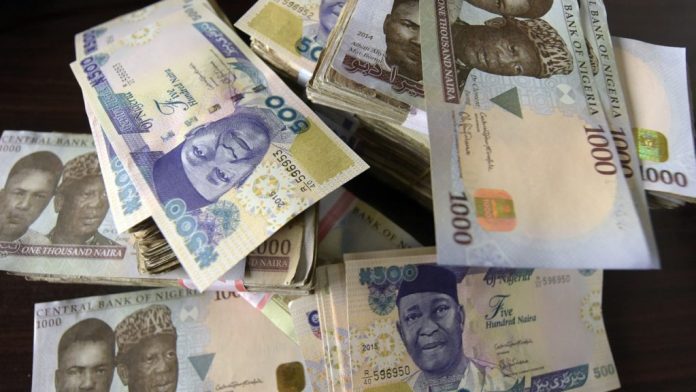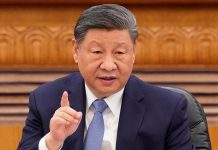

International business research firm, Economist Intelligence Unit, has said that the Central Bank of Nigeria does not have the liquidity to support the naira as of now.
It stated this in its latest Country Report on Nigeria, which was published on Friday.
The CBN unified segments of the country’s foreign exchange market on June 14, 2023, which resulted in a significant depreciation of the local currency.
The naira weakened by 36.56% to 632.77/$ on the day the CBN unified the forex market from 463.38/$ at the official market.
The naira has struggled against the dollar since then and it worsened in February following a second devaluation, which is about 45 per cent according to analysts in an attempt to close the gap with the parallel market rate.
That makes it the second-worst-performing currency in the world, after the Lebanese pound.
In the report, EIU said that the CBN may need to resort to foreign borrowing to support the naira and fulfil its foreign exchange obligations.
It stated, “Our view is that it will take foreign borrowing to rebuild the CBN’s buffers, fully clear a backlog of unmet foreign exchange orders and restore confidence. This is probably only achievable towards the end of 2024. In mid-January Nigeria took out a $3.3bn loan from the African Export-Import Bank, secured on oil revenue in a so-called crude oil prepayment facility. This follows a $1bn loan from the African Development Bank in November, and another $1.5bn is being sought from the World Bank.
“Falling risk premiums on government international bonds make tapping the international capital market another viable (albeit costly) option once US interest rates start to fall from the second half of 2024.
“For most of this year, the naira will be highly volatile, leading to regulatory erraticism that can affect businesses, especially those holding foreign currency.
“The CBN lacks the liquidity to support the naira itself; out of $33bn in foreign reserves, a large share (estimated at nearly $20bn), is committed to various derivative deals. The CBN recently imposed restrictions on oil companies repatriating export earnings abroad, and there is a risk of wider convertibility limits being imposed until the currency stabilises.”
Also, it was revealed that the Federal Government was greatly incentivised to borrow from the CBN following the return of fuel subsidy.
In the report, whose briefing sheet was edited by Benedict Craven, EIU said that with the return of fuel subsidy, which was larger than the previous one, the FG had a strong reason to want to borrow from the apex bank.
In December 2023, the National Assembly approved the securitisation of the outstanding debit balance of N7.3tn of the ways and means advance in the consolidated revenue fund of the Federal Government. Ways and Means is a loan facility through which the CBN finances the Federal Government’s budget shortfalls.
The report said, “Market reforms under Mr (Bola) Tinubu were intended to attract investment but do not constitute a coherent plan. His two flagship policies, the elimination of petrol subsidies and the liberalisation of the exchange rate have an inner contradiction. As Nigeria imports virtually all its fuel, devaluations of the naira, the latest being a 45 per cent drop in February, should be reflected in the pump price.
“However, owing to the threat of industrial action, there has been little movement since June, despite the naira having weakened from N461:$1 in May 2023 to N1,600:$1 in late February 2024. This indicates the return of a (large) subsidy. Denying this publicly, the government has a strong incentive to turn to the Central Bank of Nigeria for financing to cover the fiscal cost.
“Deficit monetisation and high inflation will undermine the currency. A possibility is that monetary policy will be tightened to a point at which foreign investors view the naira more favourably.”
According to the report, although the CBN raised its policy rate in February, President Tinubu has expressed an aversion to high interest rates.
“As inflation has been allowed to rise to a level at which a positive real short-term interest rate would create a significant rise in unemployment—adding another policy¬ induced element to economic hardship—we assume that politics will prevent this from happening. The CBN’s independence has been heavily eroded in recent years; because fiscal firepower is so limited, the government will continue to rely on monetary policy to achieve job-creation and development objectives,” it said.
EIU revised its 2024 economic growth forecast for Nigeria from 2.2 per cent to 2.5 per cent, premised on higher than previously expected crude output and earlier than expected production from the Dangote refinery, which is expected to provide some relief although fuel import is expected to continue its dominance.
“The new, 650,000-barrel/day Dangote mega-refinery is another possible circuit breaker. The facility is gearing up for its first fuel exports, to be followed by cargoes to the domestic market. In theory, the facility can meet all domestic needs but petrol subsidies make it unclear whether doing so will be profitable (let alone profit-maximising). In any case, Nigeria will continue to depend on fuel imports for most of the year as the refinery ramps up output,” the report said.
Describing the implementation of the twin policies of floating the naira and fuel subsidy removal as hasty, the EIU said, “Mr Tinubu has embarked on the biggest economic shake-up in a generation, rapidly rolling out unpopular market reforms and dismantling vehicles for patronage and corruption. Upon coming to power, Mr Tinubu quickly moved to deregulate petrol prices and float the currency. In theory, these reforms are needed to put Nigeria on a higher growth path, but implementation has been hasty and inflation has been allowed to rise to decades-long highs. As the crisis is distinctly policy-induced, there is a serious risk of mass protests and strikes.
“Given the potential threat of industrial action on a scale not seen since 2012, the government has been forced to backtrack in some areas, notably on petrol subsidies. Attempts to stem the decline in the currency have become more desperate, and we expect the policy to become increasingly erratic, particularly in the early part of the forecast period, as the need to stabilise prices takes on an existential dimension for the government.”
The report noted that the Monetary Policy Rate would peak at 23.75 per cent this year, currently standing at 22.75 per cent.
Inflation is projected to also likely to continue climbing for the first half of the year driven by the hefty devaluation of the naira in February.
“We expect a full-year rate of 30.3 per cent, which includes some disinflation in the second half of the year,” EIU said.
Meanwhile, it projected that the Nigerian currency would depreciate below 2,000/$ before the year runs out.
Highlighting top concerns and risks to its forecast, EIU said that if President Bola Tinubu moves too fast on his market reforms, it may lead to mass unrest with a very high impact.
The African Development Bank recently raised similar concerns, following the persistent increase in the prices of food items.
The AfDB sounded the warning in its macroeconomic performance and outlook for 2024.
It cautioned that an increase in fuel and commodity prices occasioned by currency depreciation or subsidy removal in Nigeria, Angola, Kenya and Ethiopia could trigger internal conflicts.
It stated, “Internal conflicts and violence could also result from rising prices for fuel and other commodities due to weaker domestic currencies and reforms.”
According to the AfDB, other risks include social unrest forcing the government to make concessions on its reforms, strikes bringing the economy to a halt and the activities of terrorists spreading from the North-East to Central Nigeria.
Meanwhile, the apex bank boss, Dr Olayemi Cardoso, in February revealed that the central bank would not be extending facilities to the Federal Government until it fulfils its outstanding obligations to it.
“I’m pleased to note the fiscal authorities’ efforts in discontinuing ways and means advances. This is also in compliance with section (38) of the CBN Act (2007).
“The bank is no longer at liberty to grant further ways and means advances to the Federal Government until the outstanding balance as of December 31, 2023, is fully settled. The bank must strictly adhere to the law limiting advances under ways and means to five per cent of the previous year’s revenue,” he noted.
Join Television Nigerian Whatsapp Now
Join Television Nigerian Facebook Now
Join Television Nigerian Twitter Now
Join Television Nigerian YouTUbe Now





